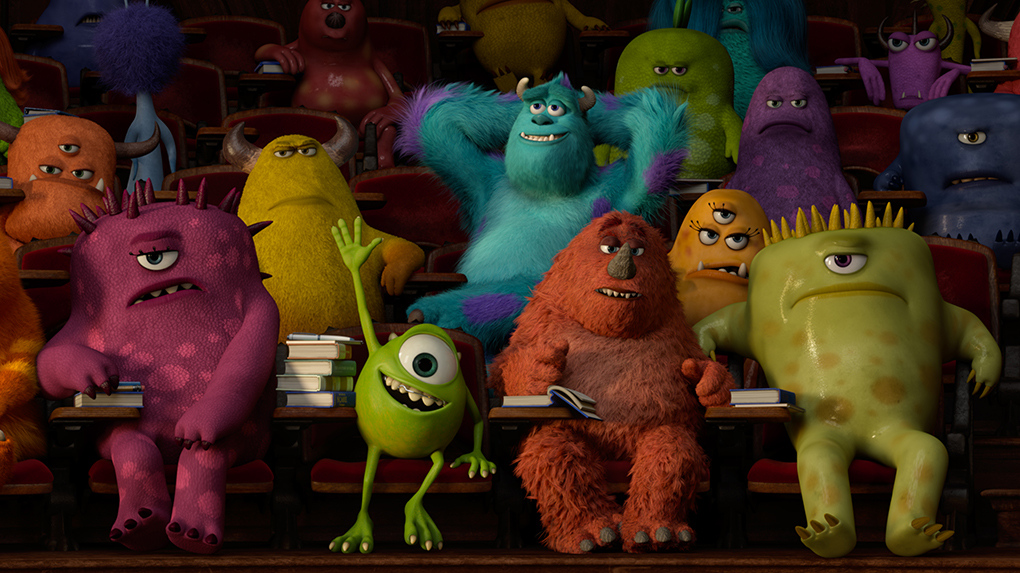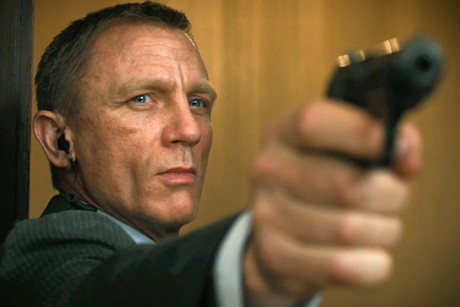
A Wild and Crazy Concept
by Hunter Isham
Director Carl Reiner's 1984 film All Of Me is about as high concept as a comedy can get before it requires the special effects budget of Ghostbusters, but strong performances sold me on the strange twist on a body-swap that occurs in this film without the presence of big thunder and lighting or any other such effects that tell you something supernatural has occurred. When the soul of the terminally ill millionaire Edwina Cutwater (Lily Tomlin) is accidentally transferred into the body of the slightly boring Roger Cobb (Steve Martin), we're treated to a hilarious sequence in which they struggle to coordinate by moving the respective halves of Cobb's body they each control. The film's humor isn't as consistent as Martin's pitch-perfect performance, but when such a talented comedian is given material with so much potential, it really doesn't matter that the finished product isn't an all-time classic.
All Of Me is essentially Freaky Friday with just one person, it's the kind of premise that is sold on the talents of the cast, and Martin absolutely nails his performance as he carries the film and its fairly simple concept through its 93-minute runtime. He's proven himself a competent actor throughout his career, and his comedic abilities were known long before he made this film, but this film offers a perfect melding of the "wild and crazy" persona Martin built up and the regular, relatable type he plays so well in films like Parenthood and Father of the Bride. Roger Cobb is the latter, while the Cobb partially inhabited by Edwina Cutwater is the former. Martin can play a character who is the joke of a movie, but here he plays a normal guy whose life becomes the joke. He's naturally funny in All Of Me, but he rarely elicits a hearty laugh when not struggling with Lily Tomlin's haughty and inexperienced Edwina, a fact that makes his focus in this part all the more incredible.
Given how many sentences in this review I've devoted to Steve Martin, it may come as a surprise that other people make this movie a success too, but they do so, even if it's Martin's show. Lily Tomlin, though not onscreen for most of the film (once she's dead, we see her as Cobb's reflection in mirrors), is perfectly cast as Edwina, as her personality is omnipresent, and we often hear her speaking to Cobb in his head. Tomlin steals her early scenes with Martin, and provides the perfect blueprint on which he can base her mannerisms and specific vocality. Perhaps one of the best scenes for this balance between Tomlin's mind and Martin's body comes when Cobb falls asleep in court, and Edwina is left to "act like a man" without letting down her host. The rest of the cast is fairly unremarkable, although this really isn't anyone else's film. Victoria Tennant is fine as a love interest and the intended destination of Edwina's soul, but her strength here is providing Martin with an interesting character off of which he can bounce his different personalities.
Writer Phil Alden Robinson (Field of Dreams, Sneakers) provides Reiner, Tomlin, and Martin with a strong script to work from, and their collective focus is what makes All Of Me a success. Steve Martin has quite possibly never given a stronger performance, as he takes some of his strongest qualities as a performer and blends them together into a character that can be both wild and crazy, and completely relatable. Like many other films Martin's starred in that are good but not great, All Of Me is a story worth telling because its cast is populated with, and led by, professionals who elevate the material. I can only imagine how terrible this film could have been had the physical comedy Martin executes and Tomlin's portrayal of the trapped soul not meshed as exceedingly well as they do. Some comedies, like Ghostbusters, go big because so much of their humor can be derived from the hilarity that ensues when you think of the wrong monster, but others, like All Of Me, have big concepts with relatively small executions, yet they can be just as funny*. All Of Me falls short of greatness because it lacks a consistency that makes legendary comedies just that, but the great elements here are so good, with all the necessary pieces aligning, that we can forget the shortcomings and simply marvel at how Steve Marin can make playing two people in one body a fresh, fun idea. 8/10
*I must say that Ghostbusters is a towering comedy classic. A 10/10 if there ever was one, if only because of Bill Murray in the Twinkie scene. All Of Me excels because Martin is as good in it as Murray is in Ghostbusters, but the latter film is so strong in every other way (Aykroyd, Ramis, Weaver, Moranis, the title theme song) that it's no wonder why it's the one of these two 1984 comedies that has become a revered part of pop culture.
















